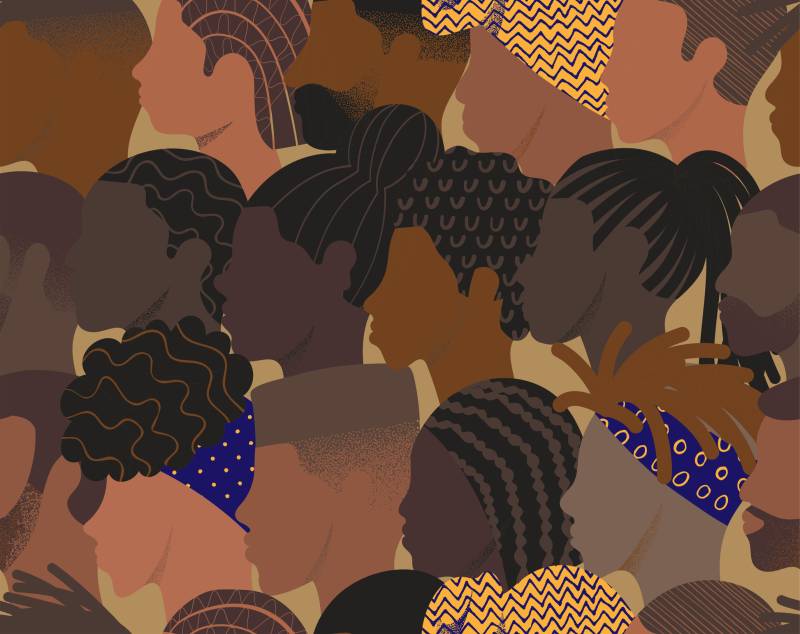The tradition–a contemporary evolution of Carter G. Woodson’s “Negro History Week”–could be seen as an opportunity to spotlight the solemn tale of Black American struggles. As such, February could lead way to a hurried, 28-day scramble to discuss all that’s happened to Black folks in America, from the transatlantic slave trade, to the Jim Crow South, to the Civil Rights Movement and the untimely death of too many Black lives to count.
For Forbes, however, February is a time for celebration.
“The most important thing for me and my colleagues is that the kids feel seen, celebrated, appreciated, and allowed to be unapologetically Black,” she says.
That is why, this year at Freedom, they’re turning it up a notch.
Forbes has worked alongside other teachers to pack this February with an ambitious series of events that honor Blackness through revelry. Among them, a Black history bingo game, talent show, non-alcoholic paint n’ sip, a spirit day dedicated to cultural dress, another to HBCUs, an assembly dedicated to go-go music, a Black history parade, and finally, a black-out, where the charge is simple: wear all black.
The impulse to center jubilation comes from Felicia Edmunds, Forbes’ elementary school gym teacher who devoted the month of February to extracurricular activities that went beyond traditional lesson plans: dancing, singing, reading poetry and more.
In part, it’s Ms. Edmunds’ example that motivates Forbes today.
“There’s so many ways to bring joy out of the curriculum,” she says. “You just have to be willing to see it and be willing to do it.”
Josephine Bangura is a senior at Freedom who is enrolled in the African-American studies elective that Forbes teaches upperclassmen.
She says that the class is a welcome departure from what it’s usually like to learn Black history in school.
“She genuinely makes it fun,” Bangura says of her teacher. “It’s like, wow, I really get to learn about this history and enjoy it.”
The way Forbes teaches leads to a richer understanding of where the country is today.
“Not only are we learning about certain history, we’re learning about exactly why these things happened and how they contribute to America as a whole,” she continued.
As the child of Sierra Leonean immigrants, Bangura also says it means a lot that Forbes highlights stories from the entire Black diaspora. The same goes for this February’s Black History Month programming.
“Everyone was included,” she says about a parade that Forbes organized to punctuate the first Friday of the month. “Seeing so many different cultures being represented at a big parade and celebrating within the whole diaspora was really nice.”
As a teacher, Forbes says ensuring that students are enjoying their experience is the whole point. This goes for everything that she teaches, not just Black history.
“It’s really hard to teach a child when you push their identity off and don’t allow them to just be and to speak and to share and to celebrate,” she says.
She knows because this was the experience that she had in middle school.
“I remember sitting in the classroom with so many questions because it felt like there were so many gaps in the curriculum,” she says.
When it came to slavery, the Civil War, or even Reconstruction, she learned bullet points, not real stories about the real lives that Black Americans lived throughout history.
But Forbes has made space for exactly that in her own classroom. Every day. All year long.
That is why a Black History Month grounded in activities and events does not feel like a missed opportunity.
“All year, we’re already teaching Black history and incorporating it into our curriculum,” she says. So, when Black History Month comes, “We want to focus on the joy, the stories, the culture, the celebration. … That’s it.”
Copyright 2023 NPR. To see more, visit https://www.npr.org.
9(MDAxOTAwOTE4MDEyMTkxMDAzNjczZDljZA004))



9(MDAxOTAwOTE4MDEyMTkxMDAzNjczZDljZA004))